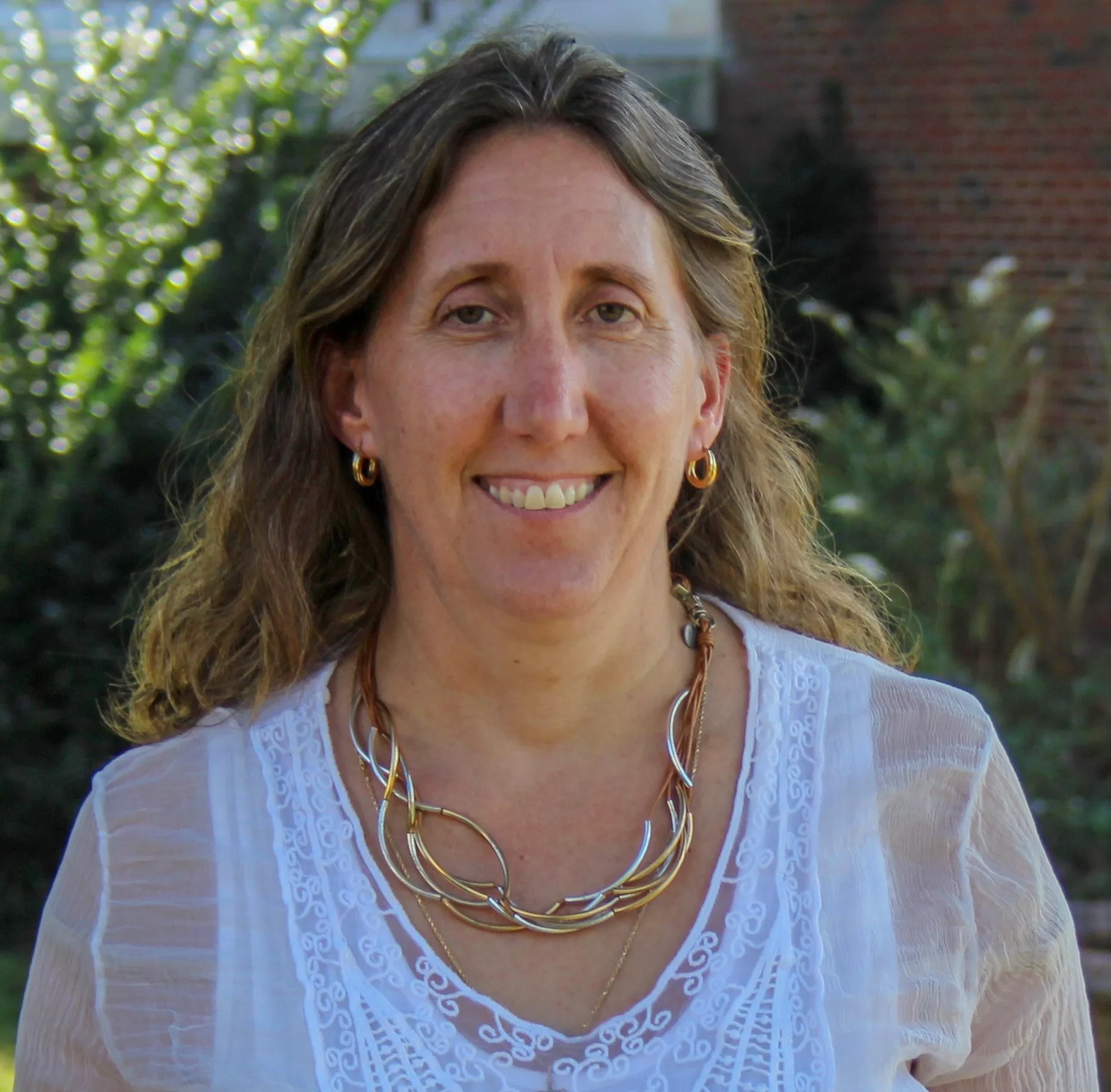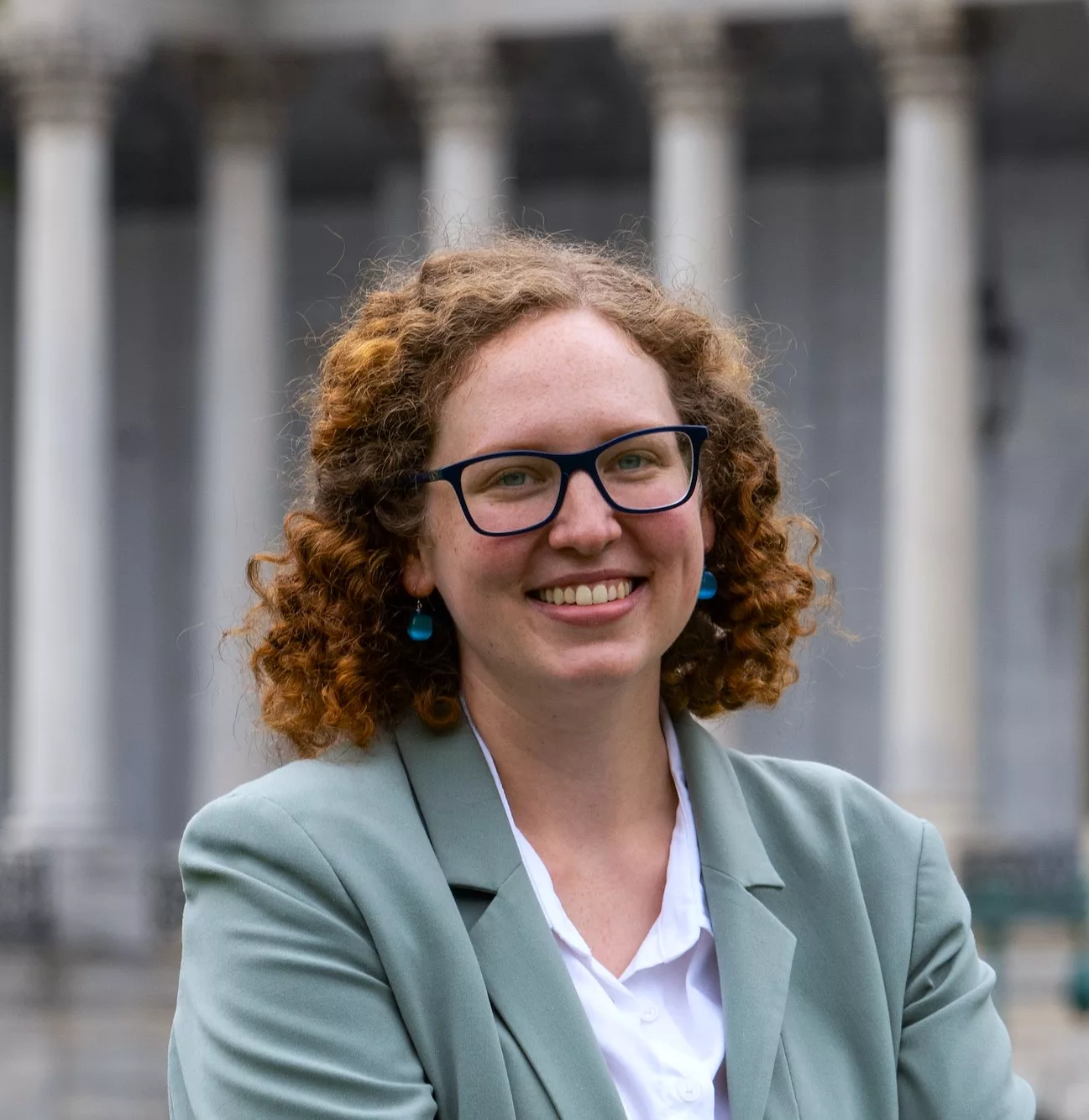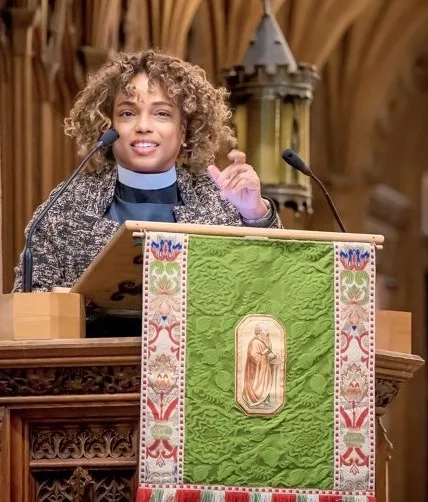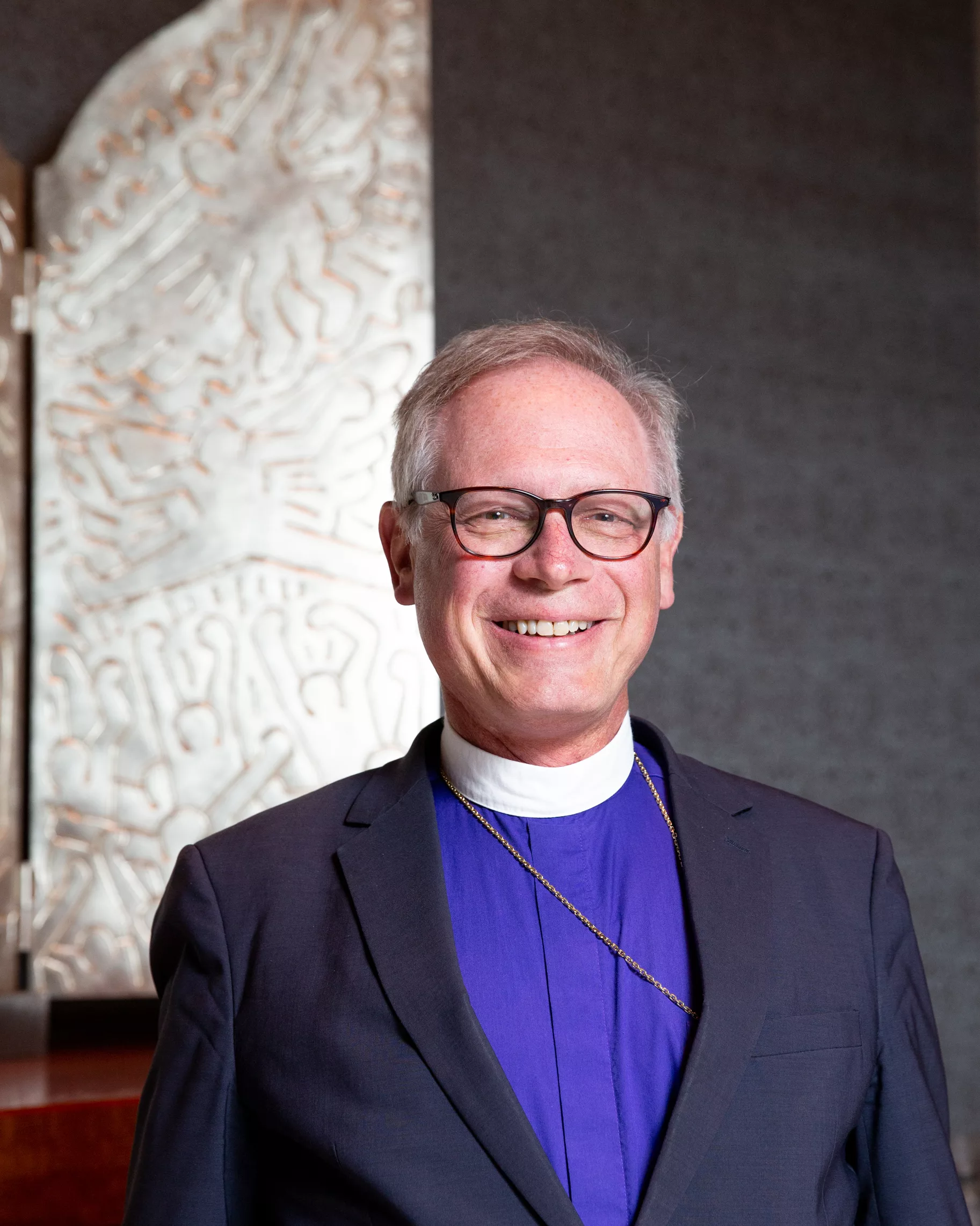Speakers
-
 Delia R. Heck, Ph.D.Ferrum College, Virginia, Professor of Environmental Science Director of Institutional Effectiveness and Assessment COP28 delegate representing the Presiding Bishop of The Episcopal Church
Delia R. Heck, Ph.D.Ferrum College, Virginia, Professor of Environmental Science Director of Institutional Effectiveness and Assessment COP28 delegate representing the Presiding Bishop of The Episcopal ChurchDr. Delia Heck earned her PhD in Geography from the University of Washington. She is the Director of Institutional Effectiveness and a Professor of Environmental Science at Ferrum College. She teaches courses in Environmental Science, Eco-Justice, GIS, and Sustainability. She works on issues of environmental justice and racism as a member of The Episcopal Church’s Taskforce for Care of Creation and Environmental Racism. Dr. Heck is also a member of Episcopal Relief and Development’s Climate Resilience Community of Practice. Her summers are spent leading Ferrum College’s Smith Mountain Lake Water Quality Monitoring Program.
-
 Ms. Susie FariaThe Episcopal Church, Policy Analyst, Office of Government Relations
Ms. Susie FariaThe Episcopal Church, Policy Analyst, Office of Government RelationsSusie Faria is a life-long Episcopalian and clergy kid from Massachusetts and was previously an intern before beginning this role at OGR. Prior to joining this office, she obtained her B.A. in Global Studies with minors in International Relations and Arts and Communications, while traveling the world with Long Island University Global, studying in Central America, Europe, and Australia. Her experiences abroad developed and curated her passion for the environment, history, international relations, and interreligious relations. In 2021, she attended the UN Conference of Parties (COP26) as a part of the Presiding Bishop Michael Curry’s virtual delegation and has been honored to join COP27 and COP28 as a staff member.
-
 The Reverend Melanie MullenThe Episcopal Church , Director, Office of Reconciliation, Justice and Creation Care
The Reverend Melanie MullenThe Episcopal Church , Director, Office of Reconciliation, Justice and Creation CareRev. Melanie Mullen serves as The Episcopal Church’s Director of Reconciliation, Justice & Creation Care – charged with bringing the Jesus Movement to the concerns of the world. Prior to joining the Presiding Bishop’s staff, she was the Downtown Missioner at St. Paul’s Episcopal Church in Richmond, Virginia, leading a historic southern congregation’s missional, civic, and reconciliation ministries. Before receiving her Masters in Divinity from Virginia Theological Seminary, she studied history at the University of North Carolina, Chapel Hill, NC, with a Bachelors and graduate program in Africana Women’s Studies at Clark Atlanta University. Melanie worked in campaign fundraising and development, raising more than $10 million for leadership PACs, the Congressional Black Caucus, and US Congressional and gubernatorial races from Louisiana to Connecticut; and she served as Development Associate for the National Law Center on Homelessness and Poverty, with a focus on poverty advocacy.
-
 The Right Reverend Dr. Marc AndrusThe Episcopal Church , Bishop, Episcopal Diocese of California and Head of COP28 Presiding Bishop’s Episcopal Church delegation
The Right Reverend Dr. Marc AndrusThe Episcopal Church , Bishop, Episcopal Diocese of California and Head of COP28 Presiding Bishop’s Episcopal Church delegationMarc Andrus is the 8th bishop of the Episcopal Diocese of California. Raised among the hills and lakes of East Tennessee, he early developed a love for the beauty of the Earth and a commitment to protect it. Trained for the Episcopal priesthood at Virginia Seminary, Marc served in several settings before becoming Bishop Suffragan of Alabama in 2001 and embarking on a journey of learning and advocacy in race relations and environmental advocacy. Elected Diocesan Bishop for the Episcopal Diocese of California in 2006, Marc has grounded his work in a variety of justice areas in a life of contemplative prayer. Beginning with the 2015 UN Climate Summit in Paris, Marc has led Episcopal delegations to subsequent global climate summits. He also serves on the interfaith coordinating council for the COP28 Faith Pavilion. Marc and Sheila Andrus live in San Francisco and are the parents of two adult daughters. Marc co-authored with theologian and activist Matthew Fox the award-winning Stations of the Cosmic Christ.
A Case Study in Faith-Based Advocacy and Witness: The Episcopal Church, The Gwich’in People and “The Place Where Life Begins” – The Episcopal Church
This session will introduce a multi-decade effort by members of The Episcopal Church to stand in solidarity with the Gwich’in People of Alaska, the majority of whom are Episcopalians, in their effort to prevent drilling in a fragile portion of the Arctic National Wildlife Refuge (ANWR). The panelists will also describe parallel efforts in solidarity with the people of Kivalina Village, an Indigenous Alaskan community that has experienced early, total loss and damage of their island home. Like the Gwich’in, the residents of Kivalina are majority Episcopalians.




